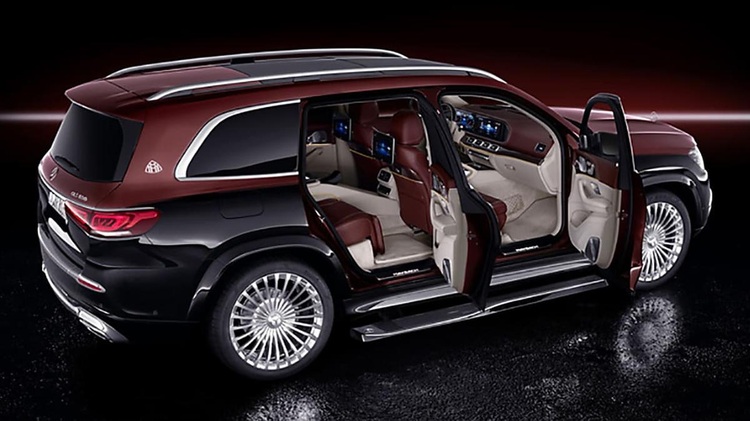Premium Electric Cars: Executive Guide to Luxury EVs in 2025
The luxury electric vehicle market has evolved dramatically, with premium automakers delivering sophisticated EVs that rival traditional luxury sedans and SUVs. Today's luxury electric cars 2025 lineup offers unprecedented performance, cutting-edge technology, and refined comfort that meets the demanding standards of executives and discerning drivers worldwide.

What Makes Luxury Electric Cars Stand Out in 2025?
Premium electric vehicles distinguish themselves through superior build quality, advanced autonomous features, and exceptional range capabilities. Top EVs for executives incorporate premium materials like hand-stitched leather, real wood trim, and metal accents throughout their interiors. These vehicles feature state-of-the-art infotainment systems, noise cancellation technology, and adaptive air suspension systems that automatically adjust to road conditions. The latest luxury EVs also offer over-the-air updates, ensuring your vehicle continuously improves with new features and enhanced performance capabilities.
How Do Tesla and Mercedes EQS Compare for Executive Use?
The Tesla vs Mercedes EQS comparison reveals two distinct approaches to luxury electric mobility. Tesla’s Model S Plaid delivers raw performance with 1,020 horsepower and acceleration from 0-60 mph in under 2 seconds, while maintaining a minimalist interior centered around a 17-inch touchscreen. The Mercedes EQS prioritizes traditional luxury with its MBUX Hyperscreen spanning the entire dashboard, premium Nappa leather seating, and whisper-quiet cabin. The EQS offers up to 516 miles of range in certain configurations, while Tesla’s Model S provides approximately 405 miles. Both vehicles feature advanced driver assistance systems, though Mercedes focuses on comfort-oriented autonomous features while Tesla emphasizes performance-driven technology.
Which Premium Electric SUVs Lead the Executive Market?
Premium electric SUVs dominate the luxury EV segment, offering the commanding driving position and spaciousness executives prefer. The BMW iX delivers 516 horsepower with a minimalist interior featuring sustainable materials and a curved display system. Audi’s e-tron GT quattro combines sports car performance with SUV practicality, while the Genesis GV70 Electrified offers exceptional value with luxury appointments typically found in more expensive vehicles. The Lucid Air Dream Edition, though technically a sedan, provides SUV-like interior space with its innovative packaging. These premium electric SUVs feature advanced towing capabilities, all-wheel drive systems, and sophisticated air suspension for optimal ride quality.
What Advanced Features Define Top Executive EVs?
Executive-focused electric vehicles integrate cutting-edge technology that enhances productivity and comfort during travel. Advanced features include wireless phone charging pads, multiple USB-C ports, and built-in Wi-Fi hotspots for seamless connectivity. Many luxury EVs offer massage seats with heating and ventilation, ambient lighting systems with customizable colors, and premium audio systems from brands like Bang & Olufsen or Burmester. Driver assistance technologies include adaptive cruise control with traffic jam assist, automated parking systems, and 360-degree camera arrays for enhanced safety and convenience.
How Do Global Markets Influence Luxury EV Availability?
Luxury electric vehicle availability varies significantly across global markets due to regional regulations, charging infrastructure, and local preferences. European markets typically receive the widest selection of premium EVs, with manufacturers prioritizing EU launches due to strict emissions regulations. North American markets follow closely, though some models face delays due to localization requirements and safety certifications. Asian markets, particularly China, often receive unique variants or exclusive models from both domestic and international manufacturers. Local incentives and tax structures significantly impact luxury EV adoption rates, with some regions offering substantial rebates for premium electric vehicles while others focus incentives on more affordable models.
What Are the Real Costs of Owning Luxury Electric Cars?
Understanding the financial commitment of luxury electric vehicles requires examining purchase prices, operating costs, and depreciation factors. Premium EVs typically command higher initial prices than their gasoline counterparts, though federal and state incentives can reduce effective purchase costs significantly.
| Vehicle Model | Manufacturer | Starting Price (USD) | Range (Miles) | Key Features |
|---|---|---|---|---|
| Model S Plaid | Tesla | $89,990 | 405 | Supercharging Network, Autopilot, Minimalist Interior |
| EQS 450+ | Mercedes-Benz | $104,400 | 516 | MBUX Hyperscreen, Air Suspension, Premium Audio |
| iX xDrive50 | BMW | $87,100 | 425 | Curved Display, Sustainable Materials, Gesture Control |
| e-tron GT | Audi | $107,100 | 405 | Quattro AWD, Premium Interior, Sport Suspension |
| Air Dream Edition | Lucid | $139,000 | 516 | Glass Canopy, 34-inch Display, Ultra-Fast Charging |
Prices, rates, or cost estimates mentioned in this article are based on the latest available information but may change over time. Independent research is advised before making financial decisions.
Operating costs for luxury electric vehicles remain significantly lower than gasoline equivalents, with electricity costing approximately 60-70% less than gasoline per mile. Maintenance expenses also decrease substantially due to fewer moving parts, no oil changes, and regenerative braking systems that extend brake pad life. However, luxury EV owners should budget for potential battery replacement costs after 8-10 years, though most manufacturers offer comprehensive battery warranties.
The luxury electric vehicle market continues evolving rapidly, with established automakers and new entrants competing to deliver the ultimate combination of performance, technology, and refinement. As charging infrastructure expands globally and battery technology advances, luxury EVs increasingly represent the future of executive transportation, offering environmental responsibility without compromising the comfort and prestige expected in premium vehicles.




